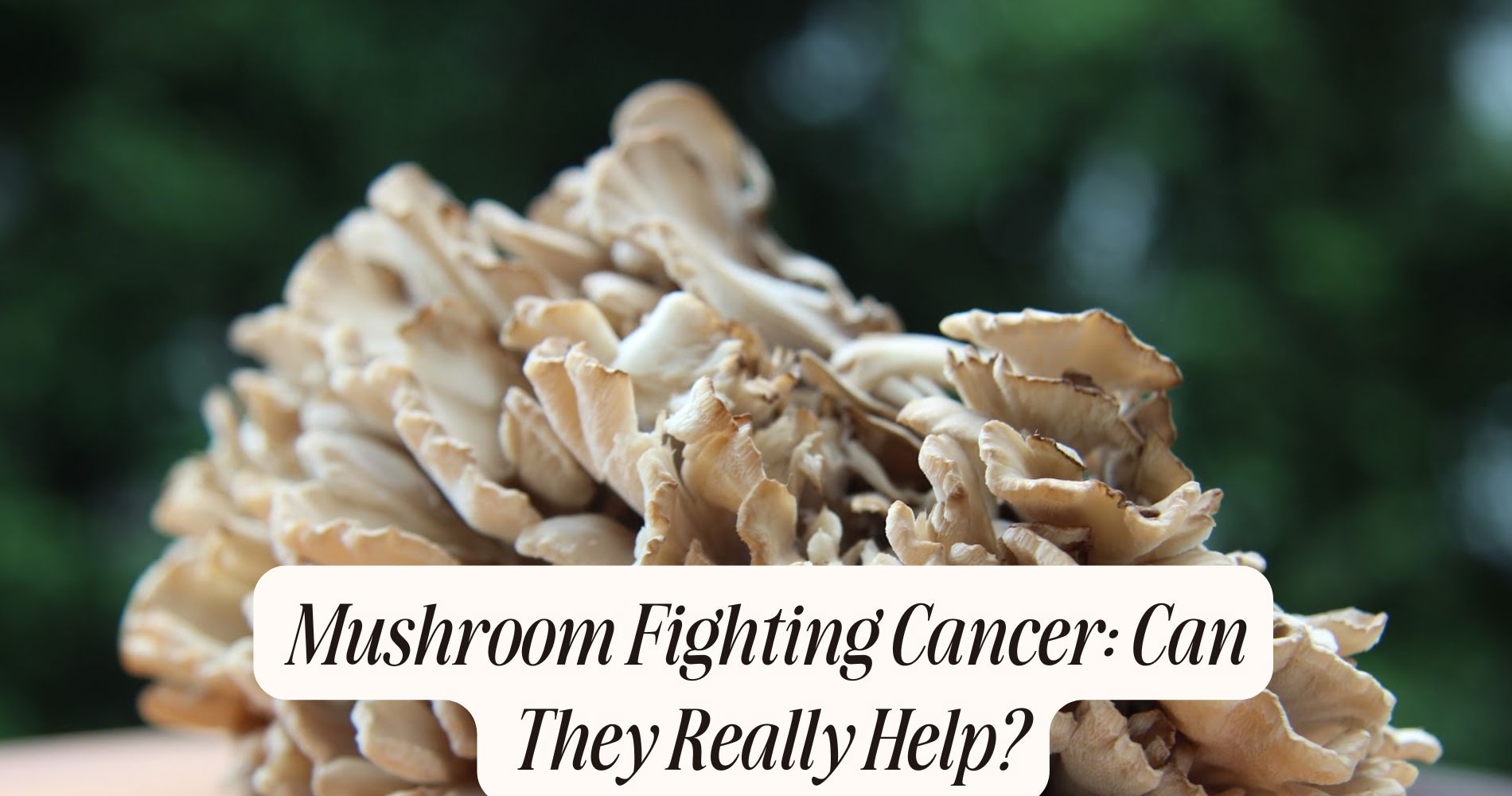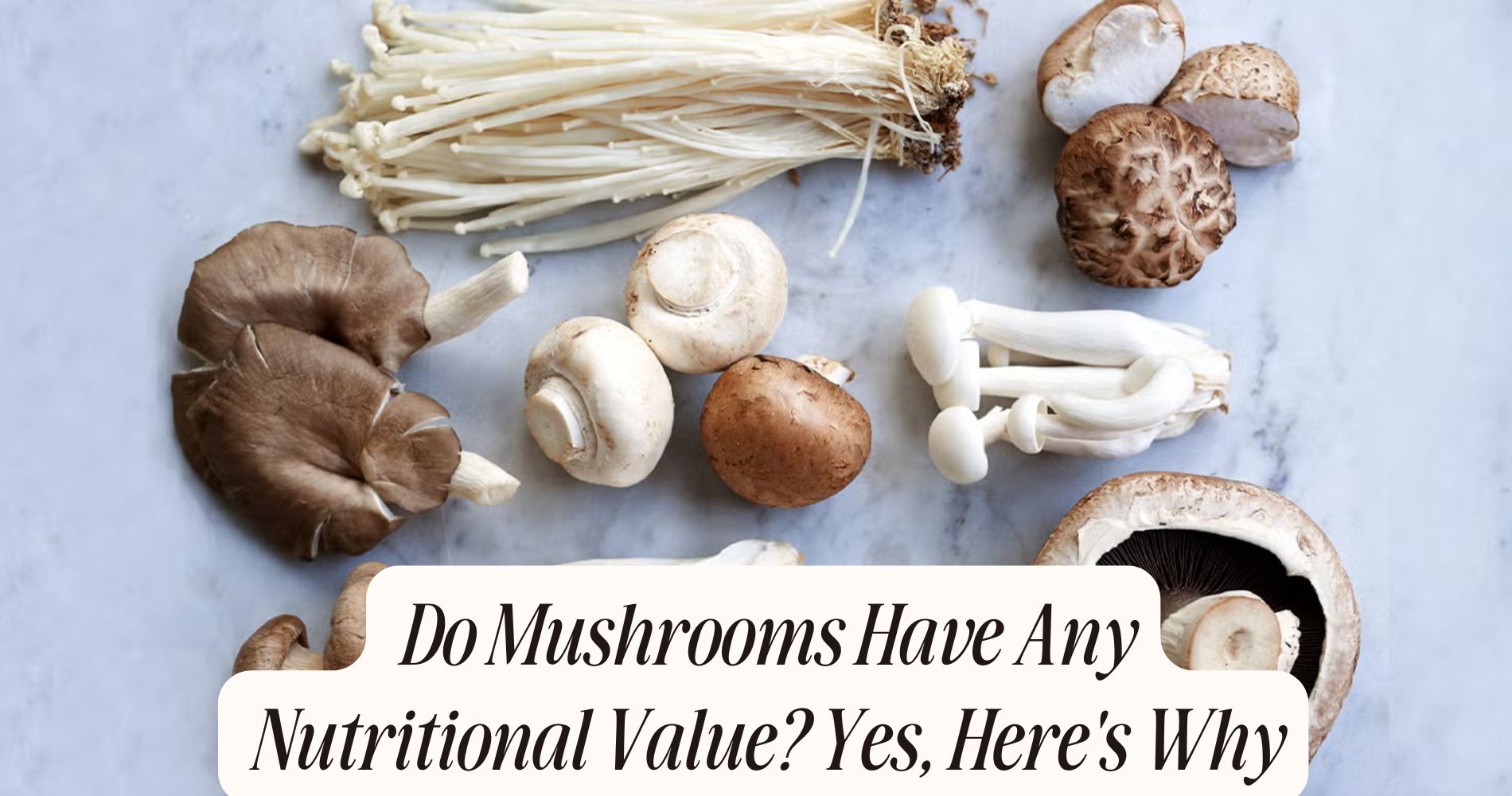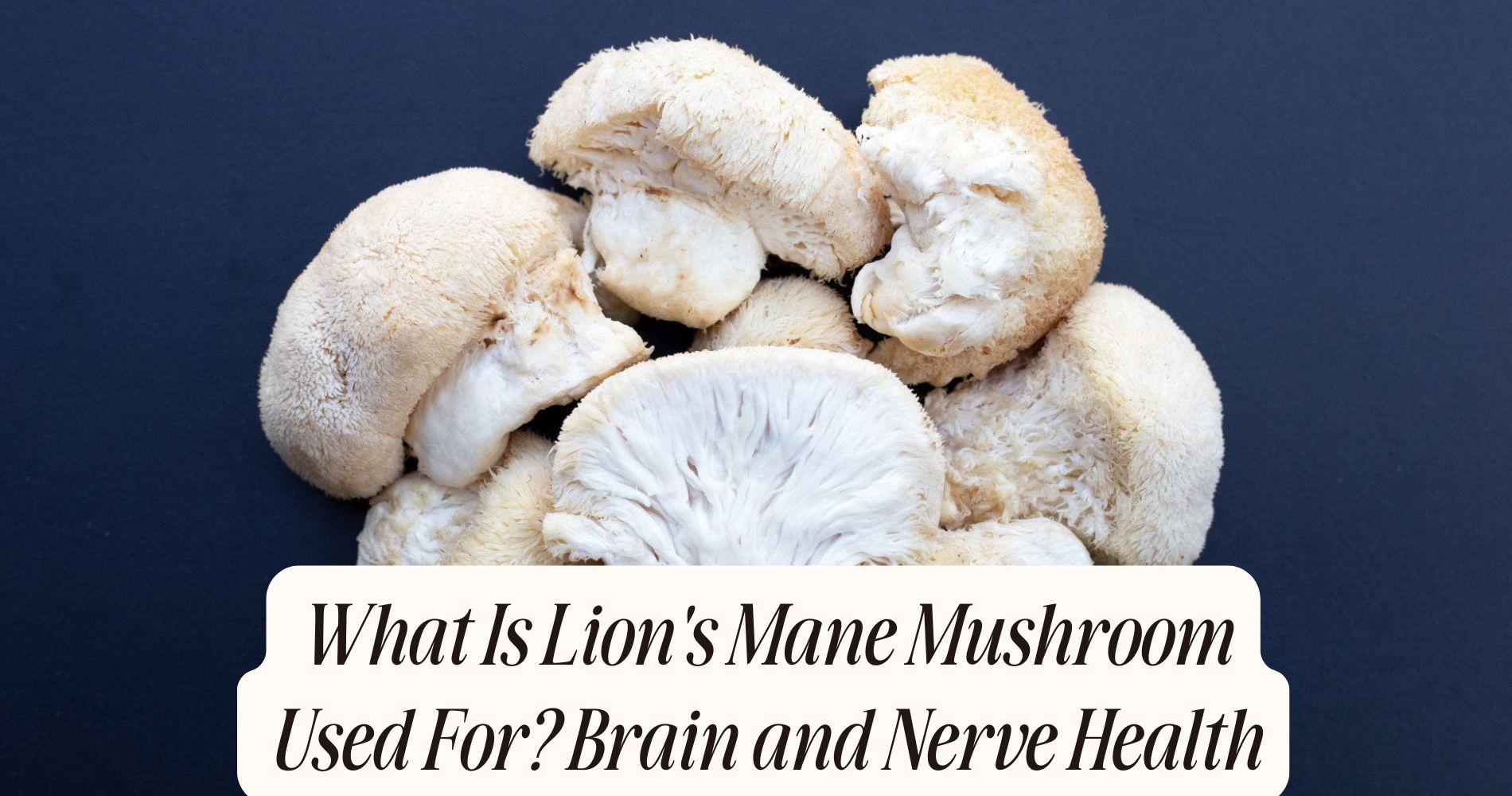
Mushroom Fighting Cancer: Can They Really Help?
Mushroom fighting cancer is a growing area of interest due to the bioactive compounds found in mushrooms, such as polysaccharides and triterpenes. These compounds help enhance immune function and inhibit tumor growth. Varieties like Shiitake and Reishi have shown promising effects in clinical studies, suggesting they could complement traditional cancer therapies. While adding these mushrooms to your diet may offer benefits, it's important to approach their use thoughtfully. Explore the specific mechanisms and varieties that may support your health journey as we dive deeper into this topic.
The History of Mushrooms in Traditional Medicine
Although many people may not realize it, mushrooms have played a significant role in traditional medicine for centuries. Cultures around the world have recognized their historical significance, using various species for their healing properties.
In Traditional Chinese Medicine, for example, mushrooms like Reishi and Shiitake were valued for their potential to boost immunity and enhance longevity. Similarly, Indigenous peoples utilized local fungi for their anti-inflammatory and antibacterial effects.

These traditional uses demonstrate a deep understanding of mushrooms' medicinal qualities long before modern science validated them. By exploring these historical practices, you can appreciate how mushrooms have shaped herbal medicine, influencing contemporary approaches to health and wellness.
Their rich legacy continues to inspire further research into their potential benefits today.
Key Compounds in Medicinal Mushrooms
In your exploration of medicinal mushrooms, you'll find that polysaccharides play an essential role in enhancing immune response, which can be critical for cancer prevention.
Additionally, triterpenes have shown promising effects in inhibiting cancer cell growth, making them significant compounds in this regard.
Understanding these key components can help you appreciate the potential therapeutic benefits of mushrooms in cancer treatment.
Polysaccharides and Immune Response
Polysaccharides, which are complex carbohydrates found abundantly in various medicinal mushrooms, play an essential role in modulating the immune response.
These polysaccharide structures, such as beta-glucans, interact with immune cells, enhancing their activity and promoting a more robust defense against pathogens and potentially cancerous cells.
Research indicates that polysaccharides can stimulate macrophage and natural killer cell functions, leading to increased cytokine production and improved immune surveillance.
This immune modulation is vital for your body's ability to identify and combat abnormal cell growth.
Triterpenes and Cancer Inhibition
Triterpenes, a diverse group of chemical compounds found in various medicinal mushrooms, have garnered attention for their potential role in cancer inhibition.
Research indicates that triterpene benefits include the ability to disrupt cancer cell proliferation and induce apoptosis, or programmed cell death. For instance, compounds like ganoderic acid, derived from reishi mushrooms, demonstrate significant cancer cell inhibition across various types, including breast and prostate cancers.

These mechanisms often involve the modulation of signaling pathways that regulate cell growth and survival. Additionally, triterpenes may enhance the effectiveness of conventional cancer therapies, suggesting a synergistic effect.
As you explore the potential of medicinal mushrooms, consider the promising role of triterpenes in developing holistic cancer treatment strategies.
Prominent Mushroom Varieties With Anti-Cancer Properties
Numerous mushroom varieties have garnered attention for their potential anti-cancer properties, offering a natural avenue for supporting health.
Shiitake benefits include compounds like lentinans, which may enhance immune function and inhibit tumor growth.
Reishi effects are linked to its triterpenes, known for their anti-inflammatory and immune-boosting capabilities, potentially reducing cancer cell proliferation.
Maitake potential lies in its ability to modulate immune responses and promote apoptosis in cancerous cells.

Finally, cordyceps properties show promise in enhancing cellular energy and possibly stalling tumor development.
Incorporating these mushrooms into your diet could provide valuable support in your overall health strategy, especially in the context of cancer prevention and management.
Exploring these options may lead to beneficial outcomes for your wellness journey.
Research Studies Supporting Mushrooms and Cancer Treatment
While the connection between mushrooms and cancer treatment is still being explored, several research studies provide compelling evidence for their therapeutic potential.
Various mushroom varieties, such as shiitake, reishi, and maitake, have shown promise in cancer research. For instance, a study published in the Journal of Cancer Research indicated that polysaccharides extracted from shiitake mushrooms can inhibit tumor growth in laboratory settings.
Additionally, reishi mushrooms have been linked to enhanced immune responses, which can be essential for cancer patients.
Another investigation revealed that maitake mushrooms might improve the efficacy of chemotherapy.
These findings suggest that incorporating specific mushroom varieties into treatment regimens could complement traditional therapies, offering patients a holistic approach in their fight against cancer.
Mechanisms of Action: How Mushrooms May Fight Cancer
Mushrooms possess a variety of bioactive compounds that may contribute to their anti-cancer effects, making them a subject of intense research interest. These compounds, including polysaccharides and triterpenoids, exhibit significant anti-cancer properties by inhibiting tumor growth and promoting apoptosis in cancer cells.

You’ll find that immune modulation is a key mechanism through which mushrooms exert their effects. For instance, certain mushroom extracts can enhance the activity of immune cells, such as macrophages and natural killer cells, which target and destroy cancerous cells.
Additionally, these bioactive compounds may help regulate inflammatory responses, creating an environment less conducive to tumor development. Overall, the diverse mechanisms of action highlight the potential of mushrooms as a complementary strategy in cancer prevention and treatment.
Clinical Trials: Current Findings and Future Directions
Recent clinical trials have revealed promising outcomes regarding specific mushroom compounds in cancer treatment.
You’ll find that these findings suggest potential pathways for future research directions that could enhance our understanding of mushrooms' therapeutic benefits.
As we explore these developments, it’s essential to evaluate how these compounds may reshape cancer treatment paradigms.
Recent Clinical Trial Outcomes
As research into the relationship between mushrooms and cancer intensifies, clinical trials are revealing promising outcomes that could reshape treatment approaches.
Recent findings indicate that specific mushroom extracts may enhance the efficacy of conventional therapies, such as chemotherapy and radiation. For example, trials featuring polysaccharide compounds from mushrooms have shown potential in boosting immune response while reducing side effects.
These results carry significant clinical implications, suggesting that integrating mushrooms into cancer treatment protocols could improve patient outcomes.
Moreover, ongoing studies aim to clarify ideal dosages and specific mushroom varieties that yield the best results. As these trials progress, you may find that mushrooms play an increasingly crucial role in cancer therapy, offering hope and new strategies for patients and healthcare providers alike.
Promising Mushroom Compounds
Clinical trials reveal that various mushroom compounds have significant potential in cancer treatment. For instance, compounds from mushroom varieties like shiitake and reishi exhibit immune-boosting properties, which can enhance the body’s ability to fight cancer.
Studies show that polysaccharides extracted from these mushrooms may inhibit tumor growth and promote apoptosis in cancer cells. Additionally, the antioxidants found in these mushrooms contribute to cancer prevention by reducing oxidative stress and inflammation, key factors in cancer development.
Some trials have indicated that integrating these mushroom compounds into cancer therapies could improve patient outcomes and reduce side effects. As the research progresses, these findings underscore the importance of mushrooms in not only treatment but also in proactive cancer prevention strategies.
Future Research Directions
While mushrooms have shown promise in cancer treatment, ongoing research is essential to fully understand their potential and optimize their therapeutic applications.
Future research should focus on large-scale clinical trials to evaluate specific mushroom compounds' efficacy in various cancer types. By systematically evaluating dosage, administration routes, and patient demographics, you can uncover critical data that informs clinical implications.
Additionally, exploring the synergistic effects of mushrooms with conventional therapies could lead to innovative treatment regimens. Identifying biomarkers that predict patient responses to mushroom-based therapies will further enhance personalized medicine approaches.
As you navigate this evolving field, continuous collaboration between researchers, clinicians, and patients will be crucial for translating findings into effective cancer care solutions.
Incorporating Mushrooms Into Your Diet
Incorporating mushrooms into your diet can enhance both flavor and nutritional value, given their rich profile of vitamins, minerals, and antioxidants.
Research shows that mushrooms, such as shiitake and maitake, contain compounds that may support immune function and potentially inhibit cancer cell growth.
To align with dietary guidelines, aim for a variety of mushrooms in your meals. Experiment with diverse mushroom recipes—sautéed, grilled, or added to soups and salads—to maximize their benefits.
When planning your meals, consider including mushrooms as a key ingredient, enhancing both taste and health. Regular consumption can also contribute to your overall dietary fiber intake, promoting digestive health.

Safety and Side Effects of Medicinal Mushrooms
Mushrooms can offer numerous health benefits, but it's important to be aware of their safety and potential side effects, especially when using them for medicinal purposes.
First, consider safety precautions by sourcing mushrooms from reputable suppliers to avoid toxic varieties. Be mindful of potential interactions with medications, as some mushrooms can enhance or inhibit drug effects.
Adverse reactions, such as gastrointestinal discomfort or allergic responses, can occur, particularly in sensitive individuals.
Dosage considerations are essential; starting with a low dose and gradually increasing can help monitor your body’s response.
Always consult a healthcare professional before adding medicinal mushrooms to your regimen, especially if you have underlying health conditions or are taking other medications.
Complementary Approaches: Mushrooms and Conventional Treatments
As researchers explore the potential of mushrooms in cancer treatment, they often find that these fungi can complement conventional therapies rather than replace them.
This concept, known as mushroom synergy, highlights how certain mushroom extracts may enhance the effectiveness of chemotherapy or radiation. For instance, compounds like polysaccharides in mushrooms can potentially boost immune response, reducing side effects and improving overall outcomes.
By focusing on treatment integration, you can leverage the benefits of both conventional and complementary methods. Studies have shown that patients incorporating mushrooms into their treatment regimens may experience improved quality of life and better tolerance to conventional therapies.
Ultimately, considering mushrooms as a supportive element could provide a more holistic approach to cancer care.
Personal Stories: Successes and Challenges in Mushroom Therapy
Many individuals facing cancer have turned to mushroom therapy, sharing a spectrum of experiences that highlight both successes and challenges.
Personal testimonies reveal that some patients report significant improvements in their healing journeys, attributing these changes to specific mushroom varieties like reishi and turkey tail. These mushrooms are believed to bolster the immune system and enhance overall well-being.
However, not everyone experiences the same benefits. Some face challenges, including adverse reactions or lack of noticeable effects.
It's essential to approach mushroom therapy as a complementary treatment alongside conventional methods. By critically evaluating these personal stories, you can better understand the potential of mushrooms in cancer care, weighing both the successes and the challenges they present in real-life scenarios.
Supercharge Your Health with SUPER MUSHROOM GUMMIES
Looking to harness the power of mushrooms for your health? Well Gummies' SUPER MUSHROOM GUMMIES are the perfect solution! With 10 types of functional mushrooms, these vegan gummies help fuel your brain, enhance focus, and support immune function naturally. Enjoy the delicious wild berry flavor—just like your favorite candy—without the jitters or crash. Keep your body energized and your mind clear with SUPER MUSHROOM GUMMIES, a convenient and tasty way to boost your wellness!
Frequently Asked Questions
Can Mushrooms Replace Conventional Cancer Treatments Entirely?
You can't rely solely on mushrooms as a replacement for conventional cancer treatments. While mushroom efficacy shows promise, they should be considered as treatment alternatives rather than complete solutions to cancer therapy. Evidence supports this approach.
Are There Specific Mushroom Recipes for Cancer Patients?
Yes, there are specific mushroom recipes for cancer patients. You can enjoy nutritious mushroom soups or sautéed mushrooms, both rich in antioxidants and vitamins, which may support overall health during treatment. Always consult your healthcare provider first.
How Do I Know if Mushrooms Are Safe for Me?
To determine mushroom safety, consult healthcare professionals familiar with your medical history. Research health benefits and potential allergies. Always choose reputable sources for information, ensuring you're consuming safe varieties that align with your health needs.
What Types of Mushrooms Are Best for Beginners?
For beginners, common mushrooms like button, cremini, and shiitake are ideal. They’re versatile and packed with health benefits, including antioxidants and essential nutrients. Start with these to enjoy both culinary and nutritional advantages safely.
Can I Grow My Own Medicinal Mushrooms at Home?
Yes, you can grow your own medicinal mushrooms at home. Home cultivation of medicinal varieties like reishi or lion's mane is feasible with the right kits and conditions, offering you the opportunity to explore their health benefits.
Conclusion
Incorporating mushrooms into your diet may offer promising benefits in the fight against cancer. Research highlights their key compounds and anti-cancer properties, suggesting a supportive role alongside conventional treatments. However, while mushrooms show potential, it's essential to approach this therapy with caution, considering individual health conditions and possible interactions. Always consult with a healthcare professional before making significant dietary changes. Embracing mushrooms could be a valuable addition to a thorough cancer care strategy.




